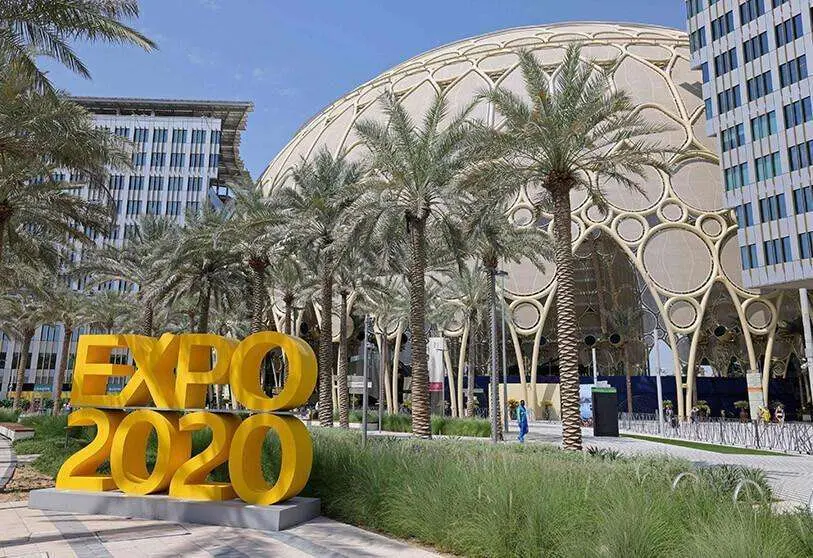Expo Live Impact Series: women who thrive are empowered to make decisions for their lives and have freedom and independence

Gender disparity places a greater burden of care on women, which has a negative economic impact, according to Expo Live Global Innovators, part of the latest edition of the Expo Live Impact Series at the Dubai 2020 World Expo.
'Helping Women Thrive', moderated by Expo Live's Yasmin Baker, featured panelists Claudia Esparza, Founder of Nana & Amas in Peru; Shaikh Saif al-Rashid, Founder of APON Wellbeing in Bangladesh; and Sabrina Habib, Founder of Kidogo in Kenya, who agreed on the definition of a thriving woman.
Expo 2020 Dubai's global innovation and partnership programme, Expo Live, supports projects with innovative and creative solutions that have a real impact on people's lives and help communities around the world build a better future.
Claudia Esparza, whose social franchise has helped more than 3,000 women find work as domestic workers and caregivers, said: "Women who thrive are empowered to make decisions for their lives and have freedom and economic independence. It means they have the tools to do and be what they want. This freedom is something that many women still do not have today".

One of the biggest obstacles to gender parity is that the burden of caring for children and older relatives falls disproportionately on women. Sabrina Habib said: "In the absence of access to childcare, a mother sometimes risks leaving her child at home alone to go to work. Or she takes an older child out of school, usually a teenage girl, to look after the younger child. Or she leaves them in an informal and unsafe day care centre that often does more harm than good to the child".
Through Kidogo, an affordable provider of early childhood care and education for low-income families in East Africa, Habib found that establishing safe environments and quality early education means that the women who run these facilities can earn a living and the young children in their care receive the early education that is crucial to their development. Older girls can stay in school and complete their education, serving as positive role models, and mothers can continue to work, knowing that their young children are safe and learning.
Confinements and school closures during the pandemic have highlighted how much women have had to take on to ensure that their children's education continues smoothly, whether simultaneously working from home or unemployed. Both scenarios have a negative economic impact.

Al-Rashid of APON Wellbeing, an omnichannel marketplace for affordable products and services for factory workers, said: "In Bangladesh, schools were closed for a year and eight months during the shutdown. After four months, factories began to reopen and the male workforce saw a faster recovery of jobs. Women were the hardest hit by the job losses and represent half of the workforce. Investing in women actually helps the economy. Women thriving in society is 'everybody's problem.
Getting women back into the workforce is only part of the solution, and Claudia Esparza emphasised the need for women to be in decision-making positions and for more agency to be added to their existing roles. This will only happen when everyone in society starts having uncomfortable conversations about how to address gender disparity.
Al-Rashid agreed: "Certain options are not always available to women, because they are restricted by systematic gaps. We need more male involvement to speak up and ensure that these restrictions are removed. These conversations must start at home, with sons, brothers, fathers and partners."
Text, photos and video: Dubai Expo 2020.








